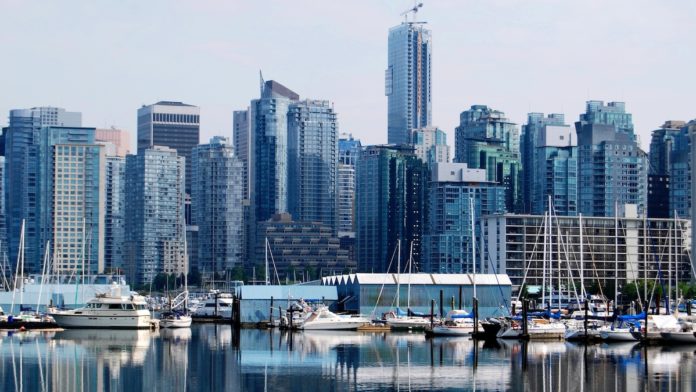
British Columbia has boosted its construction sector by including 25 new occupations in the British Columbia Provincial Nominee Program (BC PNP).
The occupations in question include a variety of trades, such as welders, plumbers, and electricians. These new additions are a welcome addition to BC’s other focal areas, such as early childhood educators, tech, healthcare occupations, veterinarians, animal health technologists, and vet technicians.
The policy change is testament to the province’s response to the immediate need for skilled labour in the construction industry, as per ConstructConnect’s Journal of Commerce (JOC).
The sector is the top employer in the provincial goods sector and accounts for 10.3 percent ($27 billion) of its GDP, but has been facing a severe labour shortage in recent times, with an eight percent drop in tradespeople over three years, with the average company size shrinking by 10 percent to 6.24 workers.
The BC Construction Association (BCCA) reported of this, in combination with outdated regulations about paying contractors on time, being the potential cause of a major slowdown in the booming business.
Read More Canada Immigration News
British Columbia Prioritises 25 Construction Occupations For Immigration
British Columbia Targets Construction Workers For First Time In PNP Draw
British Columbia PNP Draw: Province Issues 193 Canada Immigration Invitations
“There is this critical shortage of workers across the province, and we need to (do) what we can to send the right messages to those workers and contractors in B.C. that this is the place they should come to live, to work, and to build our province,” told association president Chris Atchison to Global News in October.
He further said that up to 40 percent of workers in the industry are set to retire in the following decade, and that current efforts are not enough.
“Even if we are to meet our targets of attraction and retention, in 10 years time from now we’re still looking at about a 6,000-worker shortage in BC”.
The new regulation thus signals an expansion of previous efforts, which had been deemed insufficient by Atchison. He is happy with the change, but still believes that more needs to be done.
“Is it an appreciated move? Absolutely”, he says. “I talk to my counterparts in other provinces and they wish their PNP systems would be progressive in advancing in the way that B.C. is under the direction of our ministry of municipal affairs.”
However, he adds that “we need way more than that.”
“But it’s also 24 more than we had any month previous. So it’s a step in the right direction. Again, it’s a message to newcomers, it’s a message to industry that the government is paying attention.”
On the same day as the announcement, the first round of the expanded focus was held, in which 12 invitations for Canada PR were sent out under various provincial skills immigration categories and their express entry counterparts.
An additional 12 invitations are to be issued by BC.
Watch Video
Dr. Dave Baspaly, president of the Council of Construction Associations, says that this change is a great signal from the government.
“We’ve got a massive projected skill shortage over the next five years,” he says. “And it is nice to see that we’re recruiting more sharp minds to be able to do the good work that has to happen in our industry.”
Construction is not the only sector to be suffering a shortage, however, with BC trades industries across the board witnessing a labour gap. The province has seen an eight percent drop in tradespeople over the course of three years, with average company size falling by 10 percent to roughly 6.24 workers.
Electrical contractors are another profession that is being affected.
“There’s an enormous amount of demand for electrical workers in British Columbia,” says Matt MacInnis, president of the Electrical Contractors Association of BC.
“Contractors across the province are just barely able to meet that demand right now.”
JOC wrote that MacInnis agrees with Atchison and Baspaly’s assessment of the reform being a step in the right direction. However, he does not believe this to have positive offshoots for the electrical trades, due to the unique accreditation challenges faced by new – especially international – electricians in BC.
The period of adaptation to local licensure codes for BC and other Canadian electrical standards takes time. Moreover, lack of adherence to the Red Seal program may make their skills difficult to assess.
While construction does not have such issues, it has its own woes that have only compounded its troubles, according to JOC, such as rising costs, decreased commercial demand, and challenges in procurement standards and payment practices.
The industry has “lax regulations” surround payment, wrote Simon Little and Richard Zussman for Global News in October, allowing certain contractors to wait for months to receive payment for their services.
BCCA is pushing for the provincial administration to implement “prompt payment” legislation that sets firm timetables.
“Very often right now we have contractors throughout B.C. who may not be being paid for work they have done for 90 up to 120 days, sometimes even 270 days on proper invoices that have been received.
“What we’re seeing in other jurisdictions is upon proper receipt of an invoice for services received that contractors are being paid within a 28-day to 30-day period, which is standard expectations of a civil society, frankly.”
Sechelt Mayor John Henderson told Global News that BC construction’s woes are visible “at the ground level.”

